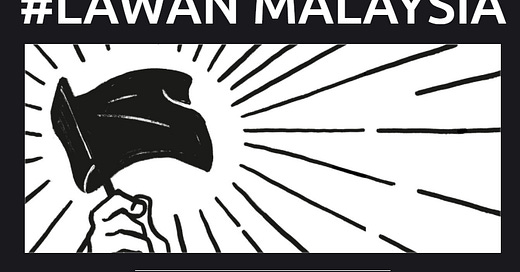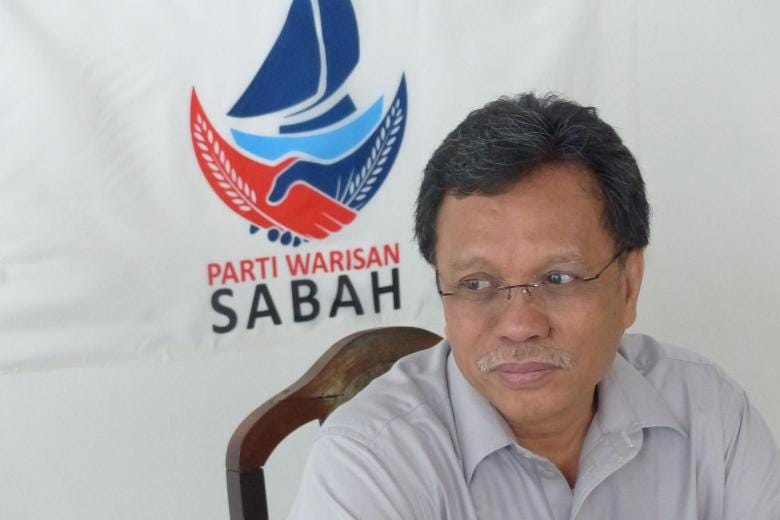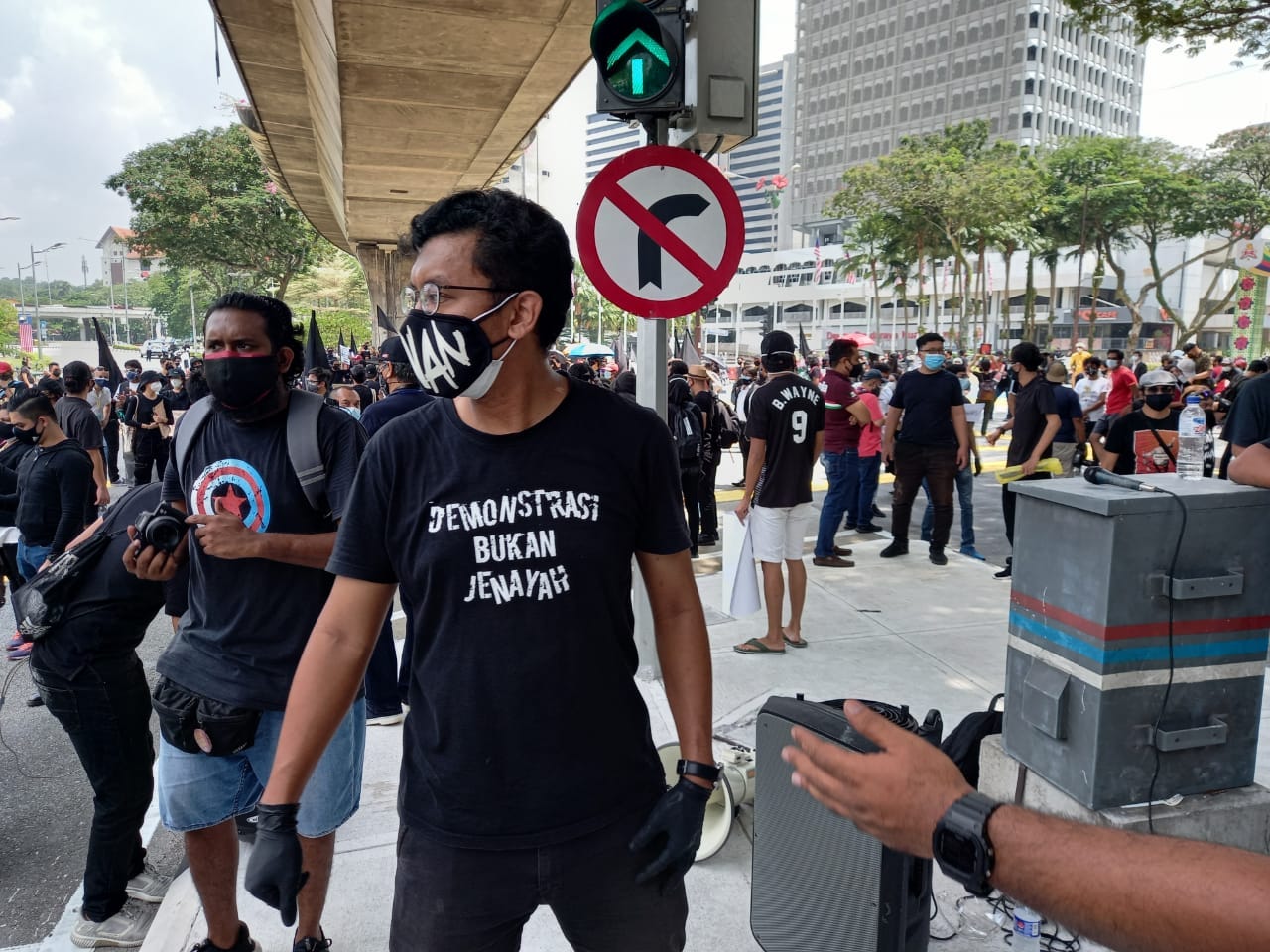Can an effective new political force emerge in Malaysia?
There is now a field of new players
The same political leaders have dominated top office in Malaysia over the last forty years. Personality politics has dominated political discussion over this period. While the major economic issues have been debated on the basis of entitlement, race, and religion, governance has been trivialized into who can and can’t call God Allah, what a whiskey can be named, and whether Malays can deliver food orders that contain pork to customers.
The major issues and challenges facing Malaysia’s future have been totally neglected, epitomized by the recent flooding.
The political environment has been devoid of discussion over which way the country should progress, while it is quickly slipping behind its neighbours. More Malaysians are finding it much more rewarding to work overseas in search of better opportunities.
The short Pakatan Harapan stint in government was disappointing for those who voted for it. This was reflected in the poor performance in by-elections when it was still in government and subsequent state elections. With a government bankrupt in any vision for the country, the middle class are rapidly falling into poverty due to government mishandling of the pandemic.
Many are now turning their hopes and aspirations towards other political alternatives.
Over the last few months, a number of independent social and political movements have been taking form. They have an aspiration to change the nature of politics in Malaysia. The rest of this article will look at these movements.
Malaysian United Democratic Alliance (MUDA): Syed Saddiq Syed Abdul Rahman has redeemed his image from his days as a minister in the Pakatan Harapan government, and is the primary co-founder of MUDA, last September. Initial government rejection of the group’s application to be registered as a political party, and PKR and DAP’s poor electoral performance, has enabled Syed Saddiq to gain some spotlight.
Syed Saddiq showing a naive charisma
MUDA is a youth orientated party, inspired by the now defunct Future Forward Party in Thailand. MUDA is multi-racial and was very active within the community raising fund for and providing flood relief to victims. Syed Saddiq is planning a nationwide ‘listening tour’ to find out the aspirations of voters to create a platform.
Although Syed Saddiq failed to gain PKR’s Nurul Izzah Anwar and Rafizi Ramle as foundation members to his disappointment, there is a wide range of youth within the MUDA pro-tem committee.
On 17th December, Shafie Apdal’s Sabah based WARISAN announced it would enter into national politics and form some alliance with MUDA. WARISAN, although a relatively new political party is strong within Sabah and in 2018, allied with Pakatan Harapan in government. Last year former prime minister Mahathir Mohamed proposed Shafie Apdal as a prime ministerial candidate in a coalition he tried to create.
WARISAN announced that it would take on the DAP and PKR in some of their electoral strongholds next general election. Together with MUDA, this coalition can do some electoral damage to Pakatan Harapan. Certainly, without WARISAN’s support from Sabah, Pakatan will have little chance of forming any federal government.
A multi-cultural PM to break the mold?
However, some pundits feel that if MUDA and WARISAN don’t collaborate with Pakatan on the peninsula, their electoral prospects will be very poor. In this scenario, MUDA and WARISAN would just become spoilers for Pakatan in many constituencies.
Gerak Independent: At the same time there is an initiative launched by the Malaysians for Justice and Unity Foundation (MAJU) to support a number of independent candidates into parliament to put a third voice into the political arena. Several high profile candidates including human rights lawyer Siti Kassim, former UMNO MP Tawfik Ismail, former journalist Charles C.J. Chow, Raveenthereran Suntheralingam, activist KJ John, and Sabah-based lawyer Roland Cheng will contest the next general election.
An outspoken independent in the house?
Parti Kuasa Rakyat: was founded last October by Kamarazaman Yaakob, brother of the current prime minister Ismail Sabri Yaakob. Although the party expresses itself as a multi-racial party, politically it supports the current government.
Parti Bangsa Malaysia (PBM): On the 21st December PBM claimed some 53,000 NGO members from Peggerak Kommuniti Negara (PKN) had pledged loyalty to the party. PBM has set out an agenda ‘The Great Reset 2030’ to correct what they have described as 30 years of stagnation and political immaturity. Although PBM claims to be citizen-centric, the party platform promotes the development of Industry 4.0, a policy which will primarily benefit large corporations rather than Malaysia’s 1.2 million MSMEs. Although claiming to be a multi-racial political party, PBM is supportive of the current Ismail Sabri government. Prima facie, PBM looks to be a future political platform for the Azmin Ali group within the current government.
As has been seen in the recent Sarawak election, money and extensive grassroots resources are required to have any meaningful electoral impact. Even Parti Socialis Malaysia (PSM) with extensive grassroot links to community groups and labour unions could only achieve parliamentary representation with the assistance of DAP and PKR, losing the Sungei Siput seat in 2018, when PKR ran a candidate against the incumbent Michael Jayakumar Devaraj.
Likewise, the political fortunes of the one issue Parti Bumi Kenyalang (PBK) in the recent Sarawak state election were completely decimated, where all candidates lost their Electoral Commission deposits. This occurred, regardless of the strong vocal support the secession issue received prior to the election.
Gerak Independent, running a limited number of high profile candidates, if well financially supported with resources on the ground, it is not impossible for a couple to get up and win their constituencies in Malaysia’s First Past the Post (FPTP) system. The same situation may exist for MUDA, particularly if they collaborate with PKR. This might allow a very small group of independents in parliament. However, any independents will struggle inside the house with the stringent standing orders favouring the government of the day. However, the prestige of being an MP may assist in raising their profile outside the parliament.
Probably the most potent movement is #Lawan, which has spontaneously grown out of the #Blackflag movement. #Lawan is a movement attuned towards the young using non-traditional methods to express their message. #Lawan has so far escaped from falling into the cult of personality, which most political parties embrace. #Lawan may one day become the precursor of a totally non-racial and secular approach to politics in the future.
Personality politics destroyed the spirit of reformasi within PKR, and the vison of a Malaysian Malaysia within the DAP.
With Malaysia quickly sliding economically, and looking more like a fundamentalist Islamic state that is repressive upon new ideas, there is a vacuum opening for a third force.
This is what is happening in Thailand. However, the authorities have seen the threat to the establishment and are harshly clamping down on the movement, charging and jailing most of the leaders. Authorities in Malaysia have taken a similar approach to the threat of #Lawan.
Protests following the ‘Thai’ street protest inspiration being clamped down upon by authorities
It is difficult to see any similar mass movement on the streets in Malaysia grow to hundreds of thousands. Malaysia has traditionally a much more compliant culture. Consequently, into the immediate future Malaysia is stuck with the old guard leadership that is not doing any favours for the nation. The First Past The Post electoral system restricts plural representation in the lower house of parliament, and the Senate is a totally undemocratic house.
One of the major impediments upon any third political force are the institutional barriers. Any new political grouping like MUDA has great difficulty being registered as a political party. There is an institutional bias that scares many Malays from speaking up for what they really believe. Malaysia has dropped from 101 to 118 in the World Press Freedom Index in 2021, and the police are extremely active questioning anyone who makes provocative statements or criticisms on social media. There are Malay groups which are trying to teach others the actual meaning of the Al-Quran, exposing corruption, and promoting a Bangsa Malaysia identity, that are continually monitored by the police Special Branch.
When the #Benderaputih or #Whiteflag campaign sporadically arose, it was harshly suppressed by the authorities. Popular movements tend to collapse in Malaysia. The reformasi movement became political and lost its spirit, and BERSIH was continually attacked and hounded by authorities. #Lawan is the latest.
However, the Malaysian political environment is very different from 2018. The Malay-centric parties are now very fragmented. The religious elements within the government are making decisions that affect non-Muslims. The Ismail Sabri government’s economic policies have been exposed for being overly ethnic-biased. Government handling of both the Covid crisis and recent floods has appealed so many of the brazen lack of concern the administration has for its own people.
The 2018 general election showed that the government can be defeated. Anwar Ibrahim’s poor handling of opposition strategy and the resulting poor electoral performance has opened up a political void there is now a mad scramble for.
Originally published in FMT 3rd January 2022
Click on subscribe so articles can be directly emailed to your inbox:








